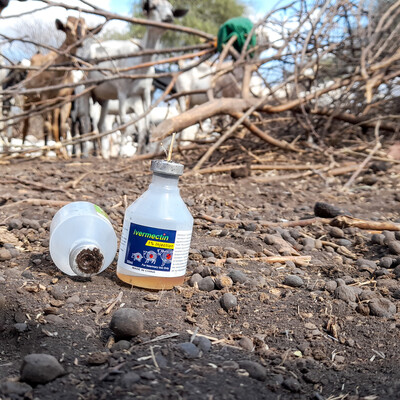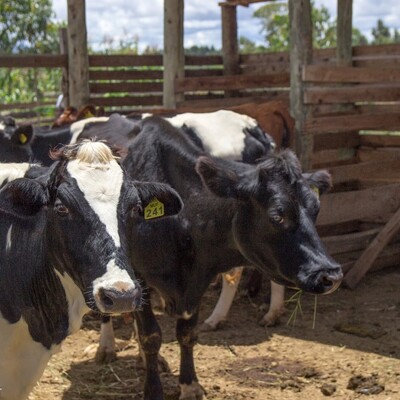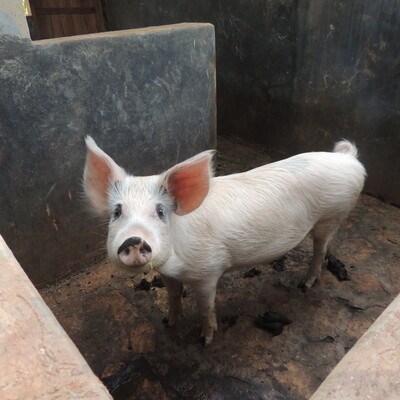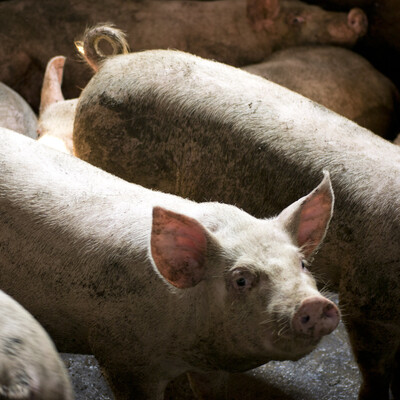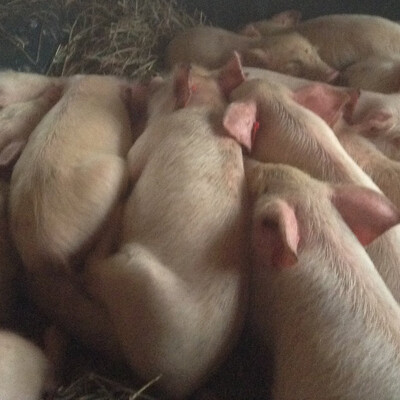
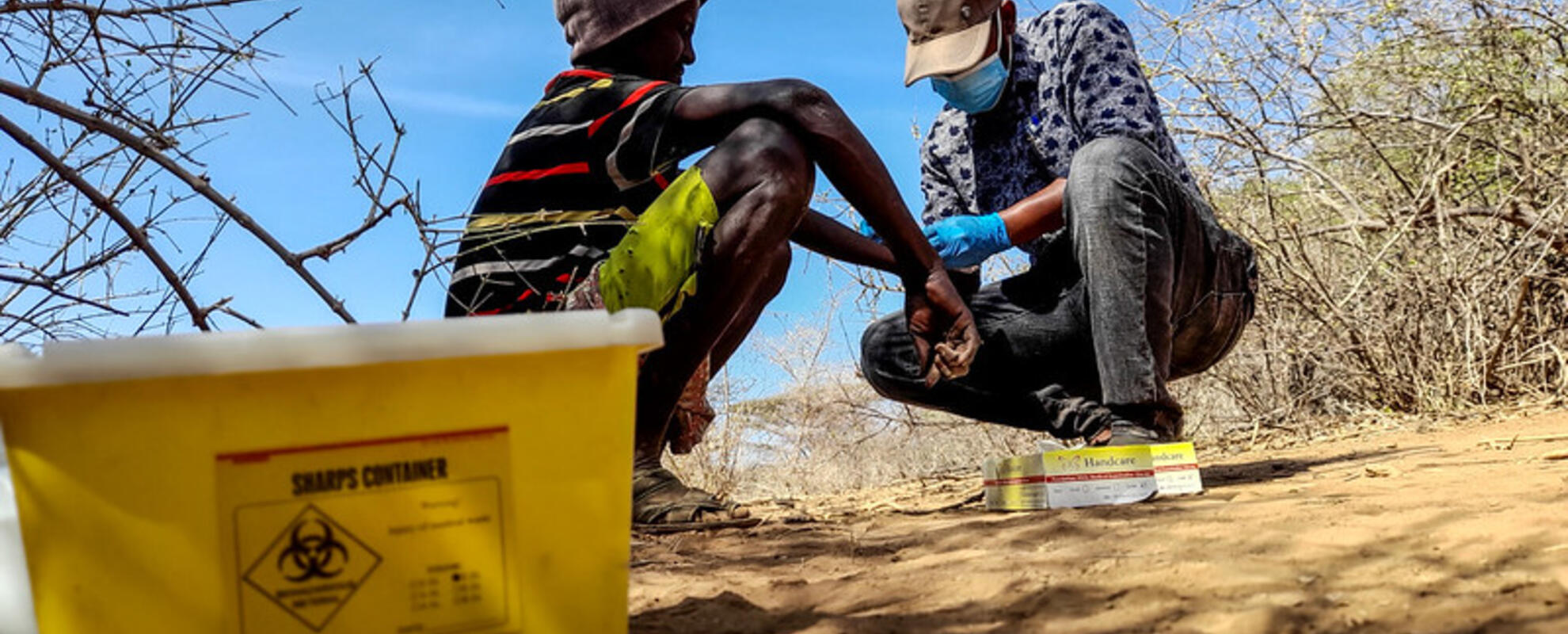
ILRI champions One Health on World Neglected Tropical Diseases Day
World Neglected Tropical Diseases Day, observed annually on 30 January, serves as a call to action against diseases that disproportionately affect the impoverished and marginalized. In 2024, the focus is on unity, action and elimination, reflecting a collective drive to improve the health and well-being of 1.62 billion people globally.
Through the One Health approach, the International Livestock Research Institute (ILRI) plays a crucial role in combating neglected tropical diseases (NTDs) such as rabies, echinococcosis, human African trypanosomiasis (sleeping sickness), leishmaniases, soil-transmitted helminthiases, taeniasis and cysticercosis. These diseases do not exist in isolation but are often the result of complex interactions within ecosystems.
By adopting a One Health approach—a collaborative, multisectoral and transdisciplinary strategy that emphasizes the interconnectedness of people, animals and their shared environment—ILRI addresses these diseases holistically, while considering the environmental and socio-economic factors that contribute to their prevalence and spread.
One Health strategy
ILRI’s One Health research strategy integrates technical, policy and institutional aspects to address health challenges. This approach is evident in the One Health Research, Education and Outreach Centre in Africa, the Capacitating One Health in Eastern and Southern Africa project, the One Health for Humans, Environment, Animals and Livelihoods project and the CGIAR Initiative on One Health.
Focusing on epidemics, endemic zoonoses, foodborne diseases and antimicrobial resistance, these initiatives tackle NTDs through research, policy development and institutional collaborations. ILRI's work spans across Africa and Asia, partnering with national and international bodies to enhance health outcomes in these regions.
Impact on specific NTDs
ILRI's contributions to combating various NTDs through its One Health approach are notable, particularly in the management and research of diseases like rabies, soil-transmitted helminthiases, taeniasis, human African trypanosomiasis, cysticercosis and echinococcosis.
- Rabies: In Kenya, ILRI's initiatives include vaccination campaigns and training programs for healthcare workers, crucial for rabies prevention and management.
- Soil-transmitted helminthiases: ILRI's broader role in understanding and managing soil-transmitted helminthiases includes research on co-infections and their implications for treatment and control strategies, addressing challenges posed by these infections and their interactions with other pathogens.
- Taeniasis: ILRI's work in controlling Taenia solium taeniasis involves collaborative efforts and research, focusing on epidemiology, diagnosis, and development of control strategies.
- Human African trypanosomiasis: ILRI has made significant contributions to the understanding of this disease, focusing on epidemiology and molecular bases of innate and acquired resistance to African trypanosomes.
- Cysticercosis: ILRI has engaged in the development of diagnostic tools and control strategies for Taenia solium cysticercosis, including pen-side diagnostic tests for pigs and strengthening surveillance and control in east and central Africa.
- Echinococcosis: ILRI's efforts include assessing the burden of echinococcosis and conducting studies on the prevalence and genotyping of Echinococcus granulosus in livestock. This research is critical for developing targeted control strategies and understanding the transmission dynamics of the disease.
These diverse research initiatives demonstrate ILRI's strategic approach to combating NTDs, aligning with broader objectives to reduce disease burdens and improve public health outcomes through effective research, community engagement and capacity building.
ILRI has been at the forefront of livestock disease management and control. Its work in understanding the epidemiology of these diseases, enhancing diagnostic capacities and formulating control strategies illustrates a commitment to not only reducing the disease burden but also preventing future outbreaks.
On this World Neglected Tropical Diseases Day, ILRI is contributing significantly to the global effort to improve the health and well-being of millions. The institute’s dedication to research and collaboration across borders and disciplines is a testament to the power of collective action in the face of health challenges. ILRI's unwavering commitment to the One Health approach is not only pioneering innovative solutions but also shaping a future where NTDs no longer impose a burden on the world's most vulnerable populations.
For more information on ILRI’s work on NTDs in livestock
- The global burden of neglected zoonotic diseases: Current state of evidence
- The Rabies Free Burkina Faso initiative: An example of how one health-oriented civil society organizations can contribute towards the achievement of the Rabies Zero by 30 goal
- Zoonoses and poverty: The multiple burdens of zoonoses in low- and middle-income countries
- Eradication of human African trypanosomiasis? Don't forget the pigs!
- The impact of the International Livestock Research Institute
- Let’s break the pork tapeworm cycle
You may also like
Related Publications

Mastitis in goats: A comprehensive systematic review and meta-analysis of prevalence and the pathogens
- Tibebu, A.
- Teshome, Y.
- Tamrat, H.
- Bahiru, A.
- Yitbarek, T.
- Moliso, Mesfin M.
- Assefa, Ayalew

Review and comprehensive analysis of knowledge, tools, and implementation gaps for the control of contagious bovine pleuropneumonia
- Manso-Silván, L.
- Amanfu, W.
- Apolloni, A.
- Comtet, L.
- Heller, M.
- Muuka, G.M.
- Rafi, L.
- Rich, Karl M.
- Sacchini, F.
- Schieck, Elise
- Totté, P.

Overcoming Newcastle disease in rural family poultry: evaluating vaccine efficacy and field challenges in Burkina Faso
- Ouedraogo, A.
- Dione, Michel M.
- Ouoba, L.B.
- Ilboudo, Guy S.
- Ouedraogo, Brice
- Mungadi, H.U.
- Alders, R.
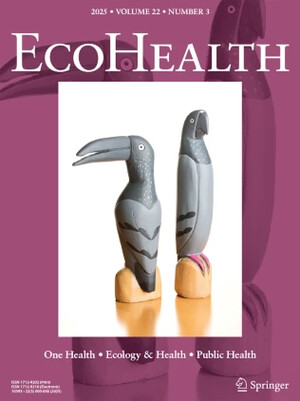
Disease risks for restoring endangered Sahelo-Saharan antelope: A literature review
- Ellis, L.
- Yu, J.H.
- Mertes, K.
- Cox, S.
- Desamours, I.
- Abakar, M.F.
- Pesci, M.E.
- Sikli, L.
- Cook, Elizabeth A.J.
- Zimmerman, D.





